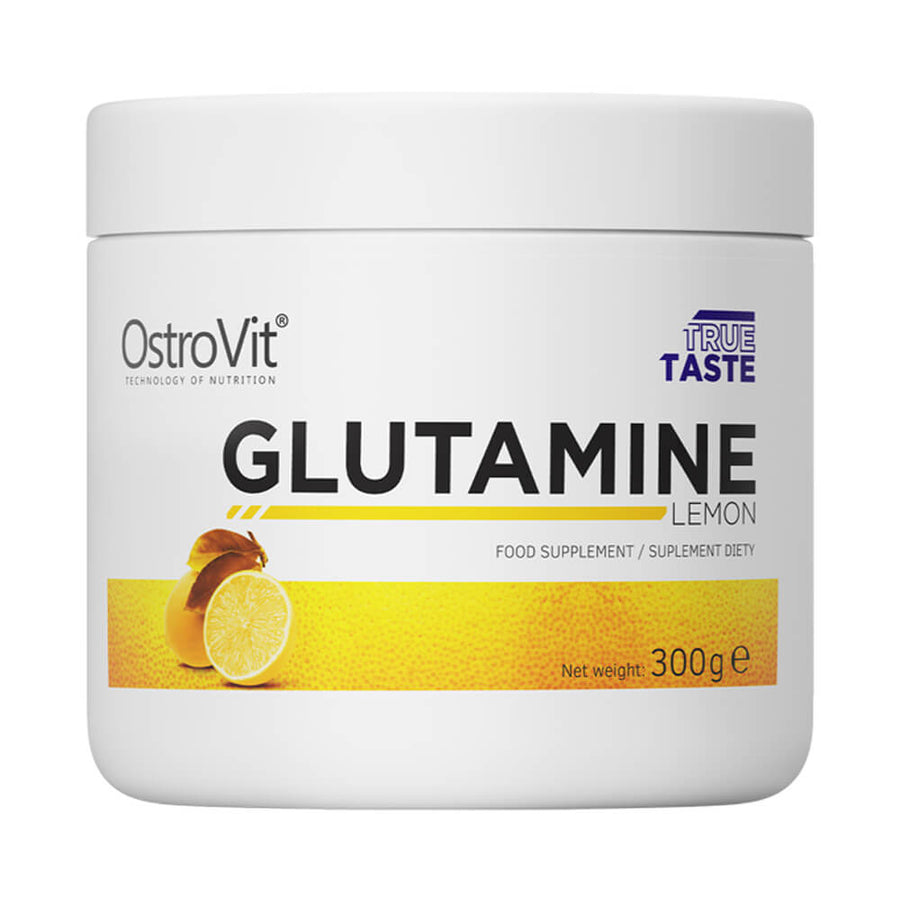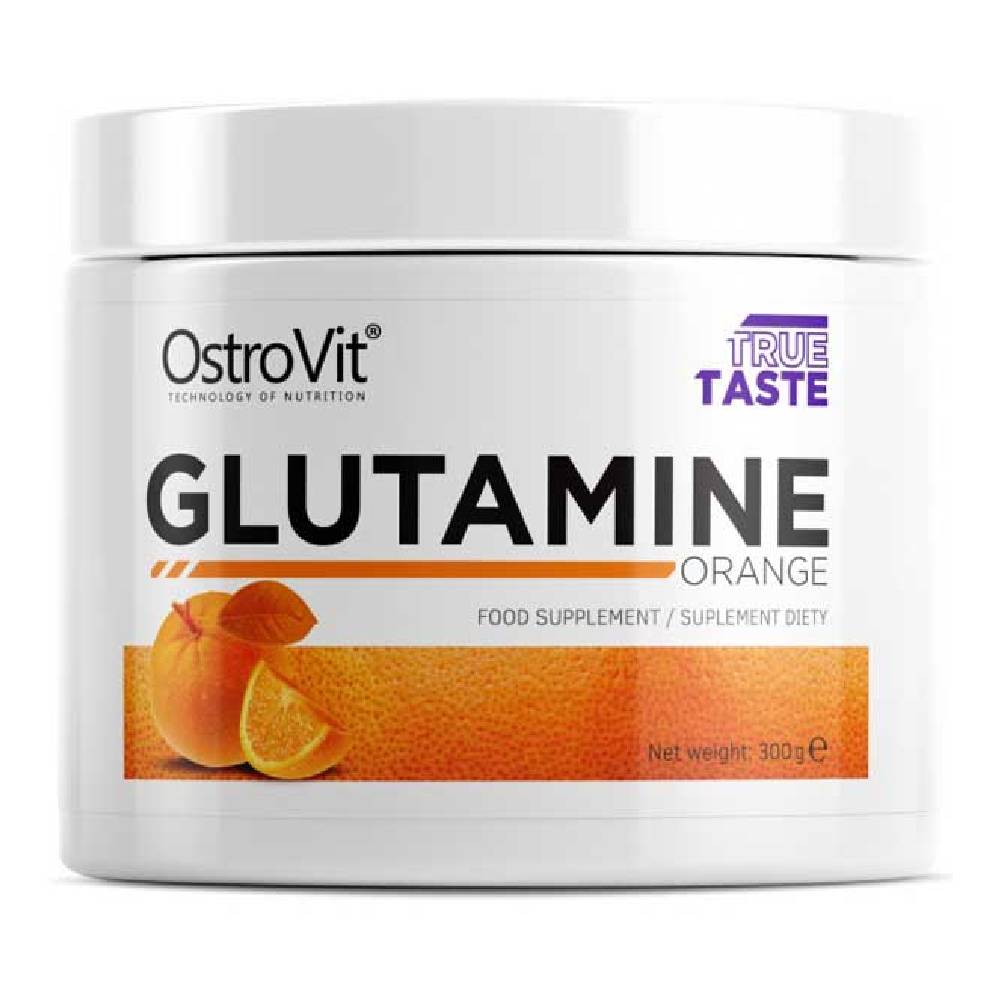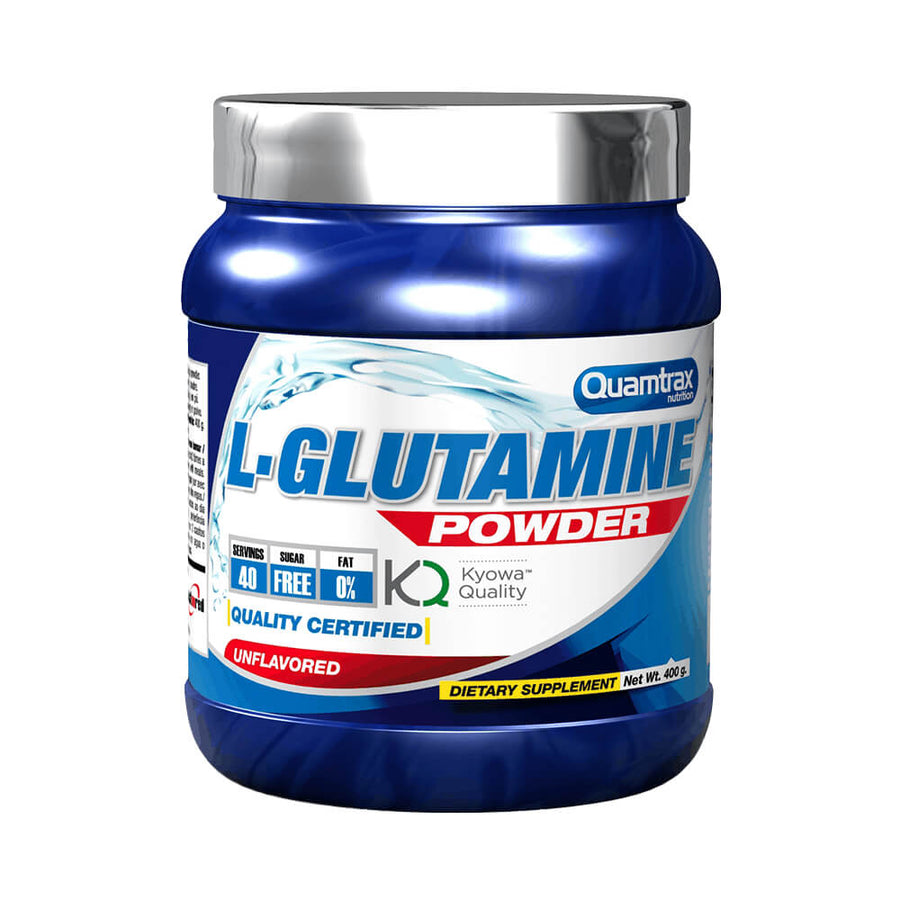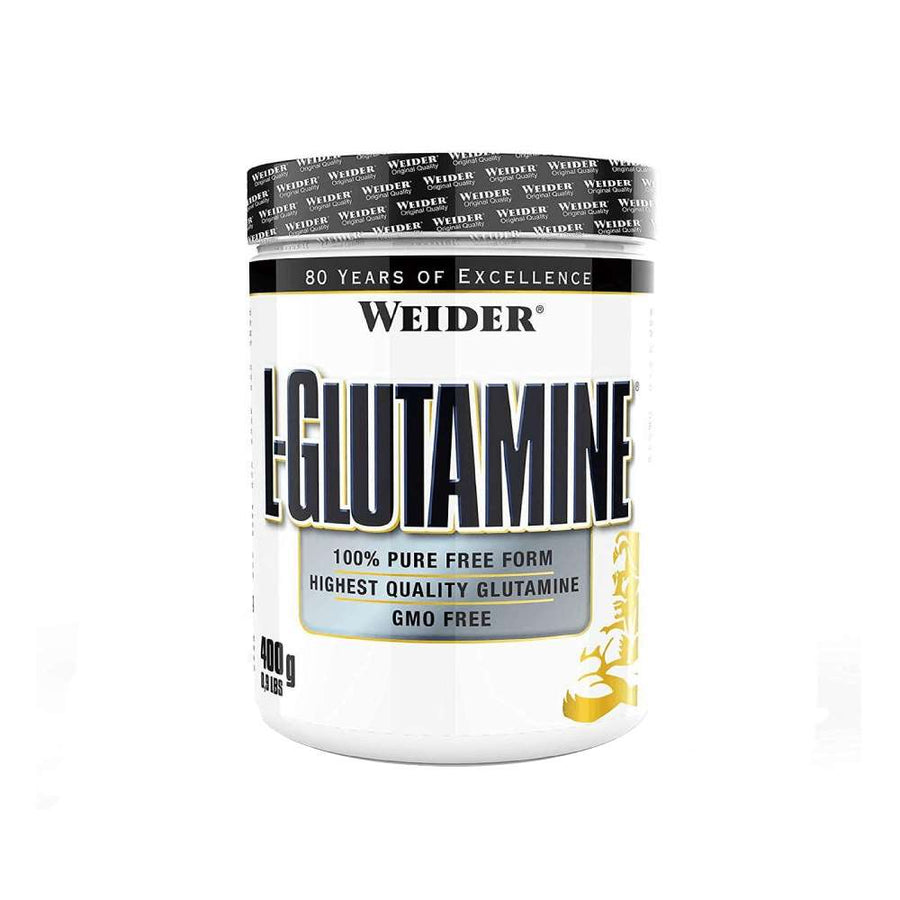Glutamine - what is it, what are its benefits and how is it administered?

Glutamine is one of the essential amino acids for the health and optimal functioning of our body, being involved in numerous metabolic and regenerative processes. Although the body can produce it naturally, under certain conditions – such as intense physical stress, trauma or demanding training – the need for glutamine can increase considerably, exceeding the internal synthesis capacity. In this context, glutamine supplementation is becoming a popular option for athletes, active people and even for those who want to support digestive health or the immune system.
If you want to learn what glutamine is, how it works in our bodies, what benefits it brings, and what are the correct ways to take it to maximize its positive effects, keep reading this article. If you've ever wondered how glutamine can contribute to muscle recovery, support the immune system, or improve digestion, this guide will give you all the information you need.
Contents:
- Glutamine or L-glutamine - what is it and how does it work in the body?
- Glutamine - benefits and possible side effects
- When and how to take glutamine?
1. Glutamine or L-glutamine - what it is and how it works in the body
Glutamine is an important amino acid that plays an essential role in the functioning of the human body. It belongs to the category of non-essential amino acids, which means that the body can synthesize it itself when necessary, without the need for constant external intake from food. Despite this ability, glutamine is the most abundant free amino acid in the blood and muscles, being involved in many biochemical and physiological processes.
Glutamine and L-glutamine are terms that refer to the same chemical compound, but there is a slight difference in how they are used. Glutamine is a non-essential amino acid, meaning that the body can produce it on its own. On the other hand, L-glutamine refers to the biologically active form of glutamine, with the “L” representing the chemical term that designates the form of the amino acid that can be used by the human body. Thus, when talking about dietary supplements or other forms of administration, “L-glutamine” is used to emphasize that it is the form that can be absorbed and used effectively by the body.
Structure and synthesis of glutamine
Glutamine has a unique chemical structure, comprising an amino group (-NH2) and a carboxyl group (-COOH), characteristic of amino acids, but also a side chain containing an amide group (-CONH2). This structure gives it special chemical properties, which allow the body to use it in various processes. Glutamine is synthesized mainly in the muscles, which have the ability to produce this amino acid in large quantities, but also in other organs such as the lungs, liver and brain. Glutamine synthesis occurs through a reaction catalyzed by the enzyme glutamine synthetase, which adds an amide group to glutamate, another amino acid present in the body.
Roles of glutamine in the body
- Nitrogen Transport : One of the main roles of glutamine is to facilitate the transport of nitrogen in the body. Nitrogen is an essential element in the synthesis of proteins and other important biological molecules, and glutamine acts as a carrier of nitrogen between various tissues. Thus, it contributes to nitrogen balance and the maintenance of muscle mass and cellular functions.
- Energy metabolism : Glutamine can be used as an energy source, especially in situations of stress or intense physical exertion, when the body needs additional energy resources. In particular, the cells of the immune system and those in the intestinal mucosa use glutamine as a primary energy source, as these cells have a high need for energy to function efficiently.
- Immune Function : Glutamine plays an essential role in maintaining immune function. Immune system cells, such as lymphocytes and macrophages, use glutamine to synthesize proteins, nucleotides, and other molecules essential for their function and proliferation. Therefore, glutamine levels in the body decrease during times of illness or stress, when these cells become hyperactive and require more fuel.
- Regeneration of the intestinal mucosa : Glutamine is an important amino acid for the health of the gastrointestinal tract. The cells of the small intestine use glutamine as a source of energy and to maintain the integrity of the intestinal mucosa. This function is essential for preventing increased intestinal permeability, which would allow bacteria and toxins to enter the bloodstream.
- Ammonia Detoxification : Ammonia is a toxic byproduct of protein metabolism, and the body has mechanisms to convert it into less harmful substances. Glutamine helps detoxify ammonia by capturing and transporting it to the liver, where it is converted to urea and eliminated in the urine.
Conversion to glutamate and glutamine in the brain
In the brain, glutamine plays an important role as a precursor to glutamate, an excitatory neurotransmitter essential for communication between neurons. Glutamine is synthesized in glial cells and transported to neurons, which convert it to glutamate, thereby facilitating the transmission of neuronal signals. In this way, glutamine indirectly contributes to cognitive processes such as memory, learning, and attention.
Glutamine homeostasis and regulation
The body regulates glutamine levels through a balance between synthesis and degradation, and under normal conditions, its levels are stable. However, during times of metabolic stress, such as during infection, trauma, or burns, the need for glutamine can increase significantly, exceeding the body's ability to synthesize it. In such situations, the body may use muscle glutamine reserves to support vital organ functions.
2. Glutamine - benefits and possible side effects
Glutamine is an amino acid with numerous health benefits, and is often used as a dietary supplement for various purposes, especially to support immune function, muscle recovery, and gut health. However, the use of glutamine supplements may also have certain side effects, especially at high doses or in certain health conditions.
Benefits of glutamine - what does it help with?
-
Supporting the immune system
Glutamine is one of the main sources of energy for immune system cells, such as lymphocytes and macrophages. During times of physical stress, such as infections, surgery, or intense exercise, the immune system's demand for glutamine increases significantly. Supplementing with glutamine can help maintain optimal immune function under these demanding conditions, preventing glutamine levels from decreasing in the body and supporting the body's ability to defend against infections.
2. Supporting muscle recovery
Glutamine is an important amino acid for athletes and active individuals because it plays a role in protein synthesis and muscle tissue repair after intense exercise. After training, glutamine levels can decrease, affecting recovery. By taking glutamine supplements, athletes can benefit from faster recovery and reduced muscle fatigue, which can improve overall performance and reduce the risk of long-term injury.
 3. Improving intestinal health
3. Improving intestinal health
Another important benefit of glutamine is its contribution to gastrointestinal health. Cells in the small intestine use glutamine as a primary source of energy, and it plays a critical role in maintaining the integrity of the intestinal lining. In addition, glutamine helps prevent increased intestinal permeability, also known as "leaky gut syndrome," in which bacteria and toxins can enter the bloodstream, causing inflammation. Thus, glutamine supplementation may be beneficial for people with intestinal problems or inflammatory bowel disease.
4. Supporting mental health
Glutamine is a precursor to glutamate, an essential neurotransmitter involved in cognitive processes, including memory and learning. In the brain, glutamine may help regulate the balance of excitatory and inhibitory neurotransmitters, playing an important role in mental health and emotional stability. Although more research is needed to confirm the benefits of glutamine supplements on mental health, they are considered promising for supporting cognitive function.
Possible side effects of glutamine
Although glutamine is considered safe for consumption, there may be side effects in some cases, especially in case of excessive supplementation or in certain health conditions.
-
Gastrointestinal problems
At high doses, glutamine can cause unpleasant digestive symptoms, such as bloating, abdominal cramps, and diarrhea. These effects usually occur when excessive amounts of glutamine are administered, exceeding the body's normal needs. Therefore, it is recommended that supplementation be done with caution, in appropriate doses, and that a specialist be consulted, especially for long-term administration.
2. Effects on the nervous system
As a precursor to glutamate, an excitatory neurotransmitter, very high doses of glutamine can lead to increased levels of glutamate in the brain. This can cause a state of nervous overexcitability, especially in sensitive individuals, manifested by headaches, irritability or even insomnia. Although these effects are rare, it is advisable for people with neurological conditions to be cautious and consult a doctor before taking glutamine supplements.
3. Impact on people with liver and kidney diseases
Glutamine is involved in the detoxification of ammonia, a toxic compound produced during protein metabolism. In people with liver or kidney problems, ammonia metabolism may be impaired, and glutamine supplementation could exacerbate this problem, leading to a buildup of ammonia in the body. People with liver or kidney problems should avoid glutamine supplements or take supplements only under medical supervision.
4. Drug interactions
Glutamine may interact with certain medications, especially those used to treat cancer. In some cases, glutamine supplements may reduce the effectiveness of chemotherapy treatments, although some studies suggest that it may help reduce side effects. Anyone undergoing chemotherapy or radiation therapy should talk to their doctor before taking glutamine.
Given that glutamine also has contraindications, it is important that its use be discussed with a doctor or specialist before administration.
3. When and how to take glutamine?
As an amino acid, glutamine plays an essential role in protein synthesis, muscle recovery, and immune system support. To fully benefit from its effects, it's important to know when and how to take glutamine, especially if you're using it in combination with other supplements, such asvitamins and minerals , pre-workout supplements , or muscle mass supplements .
When to take glutamine
-
After training
For people who use glutamine for athletic purposes, the most important time to take it is after training. During intense physical exercise, glutamine levels in the body decrease, and supplementing immediately after training helps to quickly restore glutamine stores in the muscles. This contributes to muscle regeneration and prevents muscle breakdown, especially if the goal is to increase muscle mass. During this period, the body has an increased need for nutrients, including protein, vitamins and minerals, to support recovery.
2. In the morning, on an empty stomach
Another good time to take glutamine is in the morning, on an empty stomach. After a long period of rest, such as sleep, glutamine levels can be low, and taking the supplement during this time helps to replenish reserves. Glutamine in the morning can also help support the immune system and muscle recovery.
3. Before bed
To support tissue repair and regeneration during the night, many athletes and bodybuilders prefer to take a dose of glutamine before bed. Night is the time when the body repairs muscle tissue, and glutamine, along with protein and other muscle building supplements, can optimize the recovery process.
4. During periods of dieting for weight loss
If you're looking to lose weight, glutamine may be helpful in preserving muscle mass during a restrictive diet. Calorie restriction can lead to muscle loss, and glutamine supplementation can help protect muscle and maintain energy levels. Glutamine may also reduce carbohydrate cravings, which may support weight management.
Recommended dosage
In general, the recommended dose of glutamine varies between 5 and 10 grams per day, divided into 2-3 doses. Athletes who perform intense physical activities can increase this dose up to 20 grams per day, although it is best to do this under the supervision of a specialist. Glutamine can be administered in powder, capsule or tablet form, and the powder is often preferred because it dissolves easily in water or protein shakes.
Combining with other supplements
Glutamine can be taken with other pre-workout supplements, such as creatine, branched-chain amino acids (BCAAs), and whey protein. In combination with these supplements, glutamine supports muscle recovery and growth. For example, a post-workout protein shake with glutamine can provide the body with a blend of nutrients to help speed muscle recovery. Additionally, vitamins and minerals can be added to your supplement routine to ensure adequate intake of essential micronutrients, which support recovery and immunity.
Administration method
Glutamine is most commonly taken in powder form, mixed with water or in protein shakes. Although it can also be taken in capsule or tablet form, powder is often preferred by athletes because it is absorbed more quickly and can be mixed with other training supplements. Another way to take glutamine is as a pre-workout drink, to support energy and performance during intense exercise.
In conclusion, glutamine is an essential amino acid for maintaining overall health and supporting physical performance. It plays an important role in immune system function, muscle recovery, and intestinal health, and is a source of energy for the body's cells.
References:
https://my.clevelandclinic.org/health/articles/glutamine
https://www.webmd.com/vitamins/ai/ingredientmono-878/glutamine
https://www.healthline.com/nutrition/glutamine
Photo source: Alexander Grey on Unsplash.com, Shutterstock.com.





















